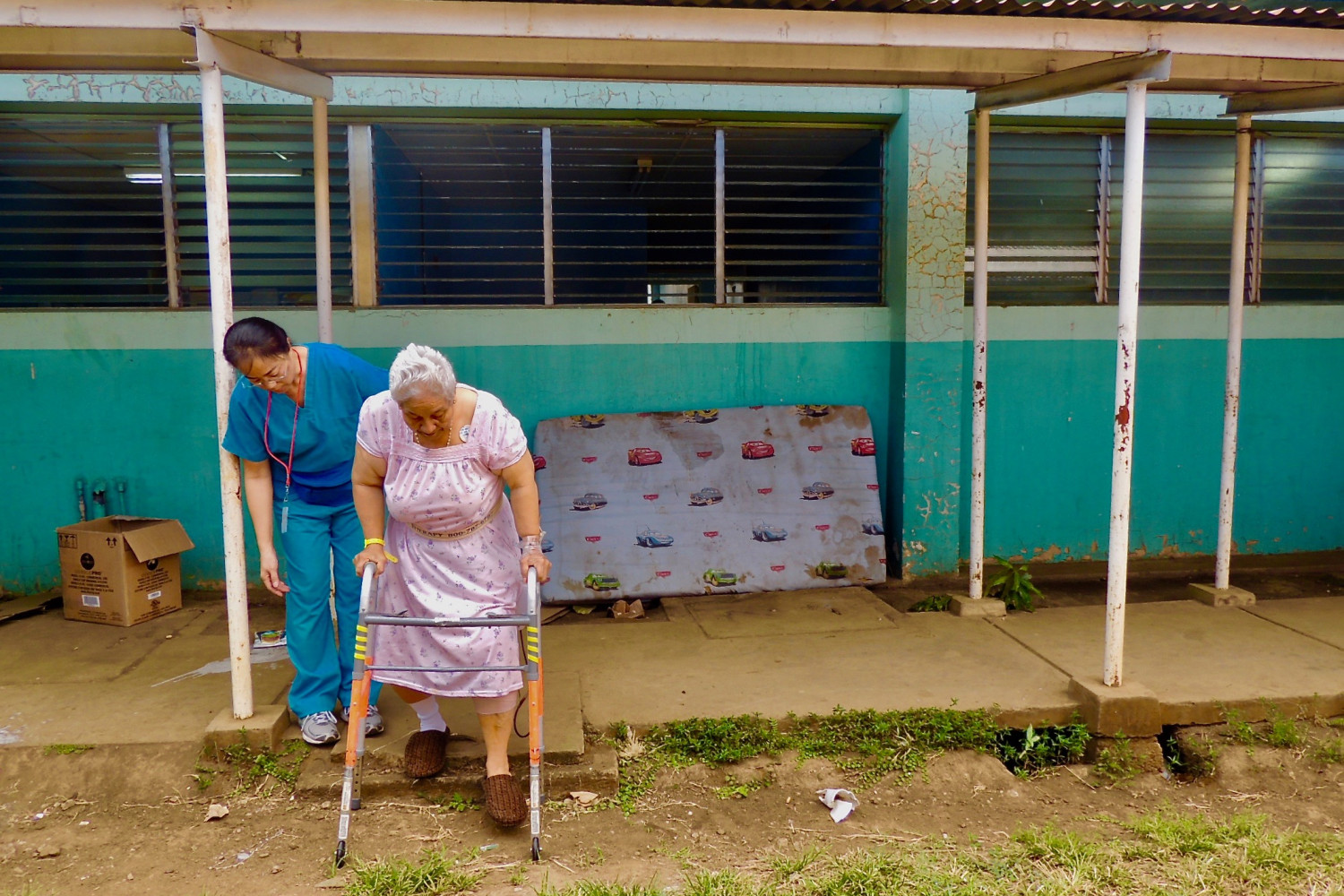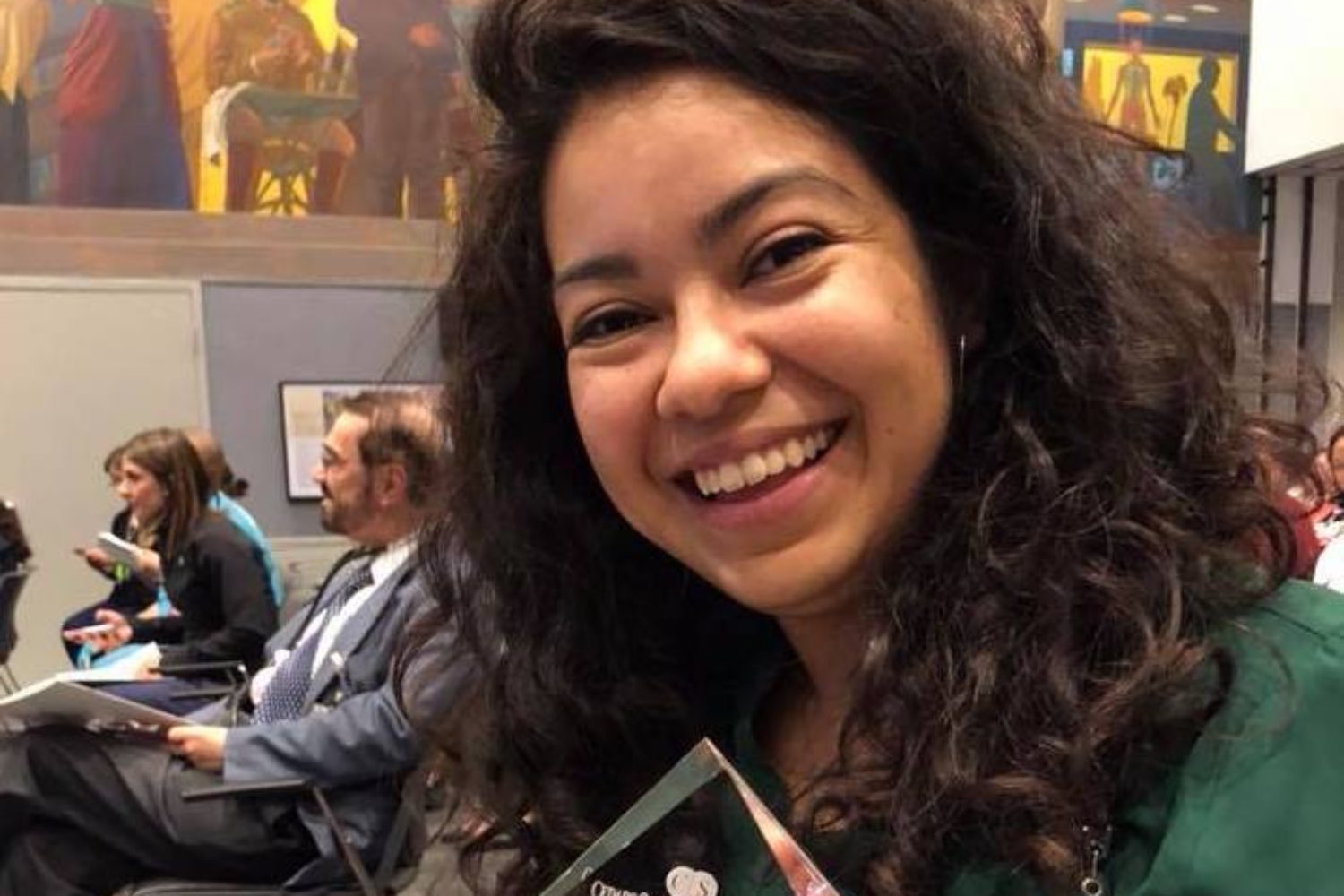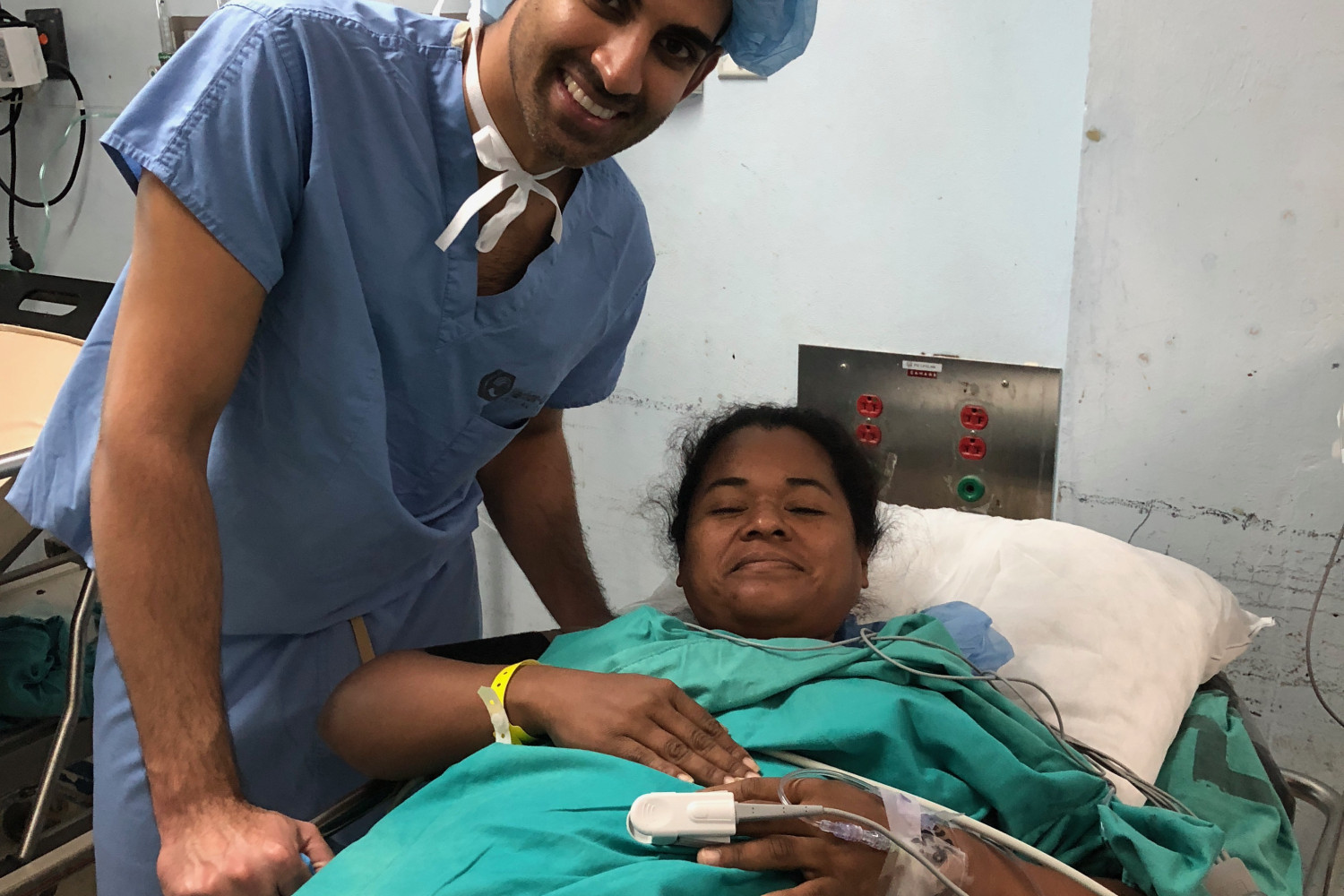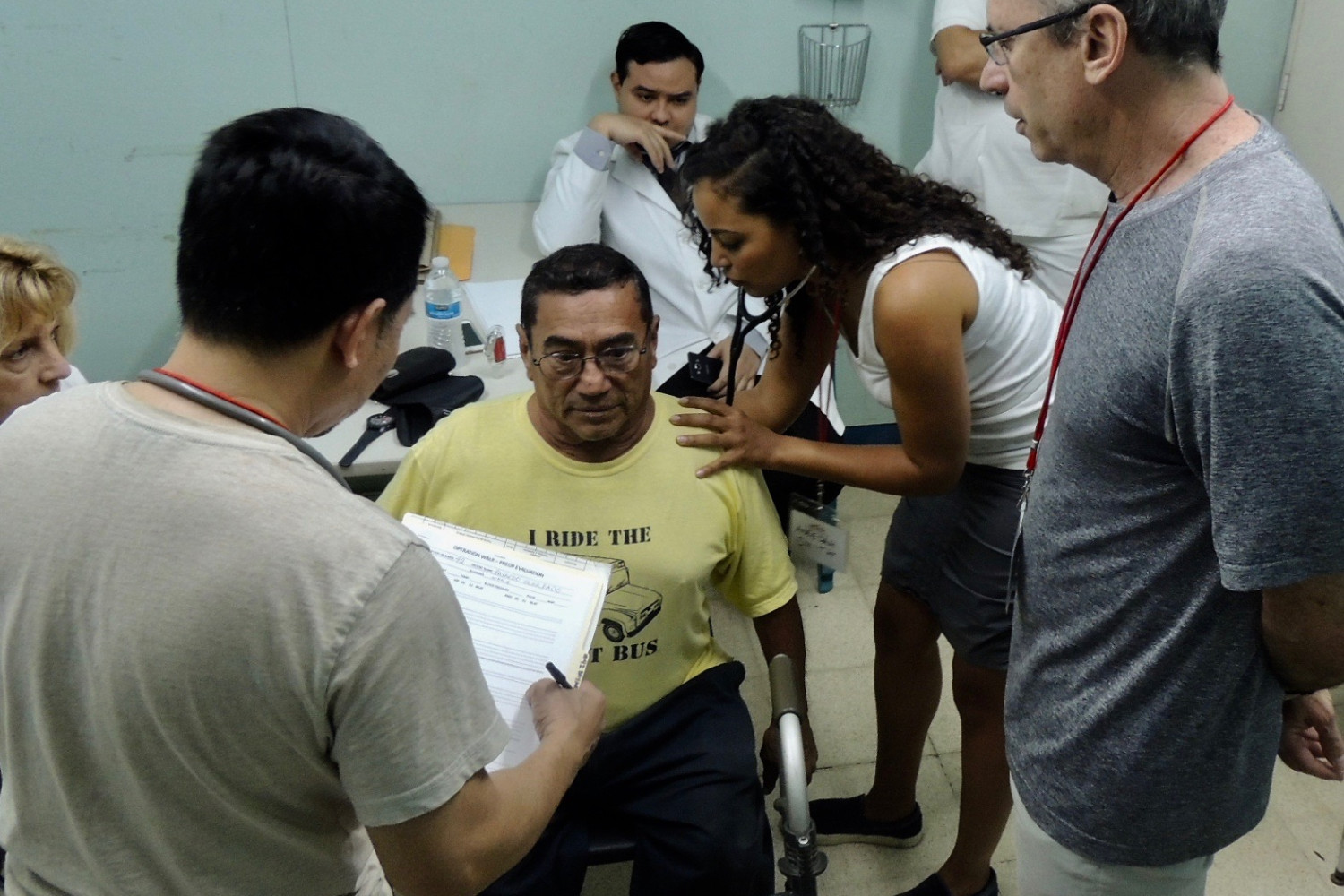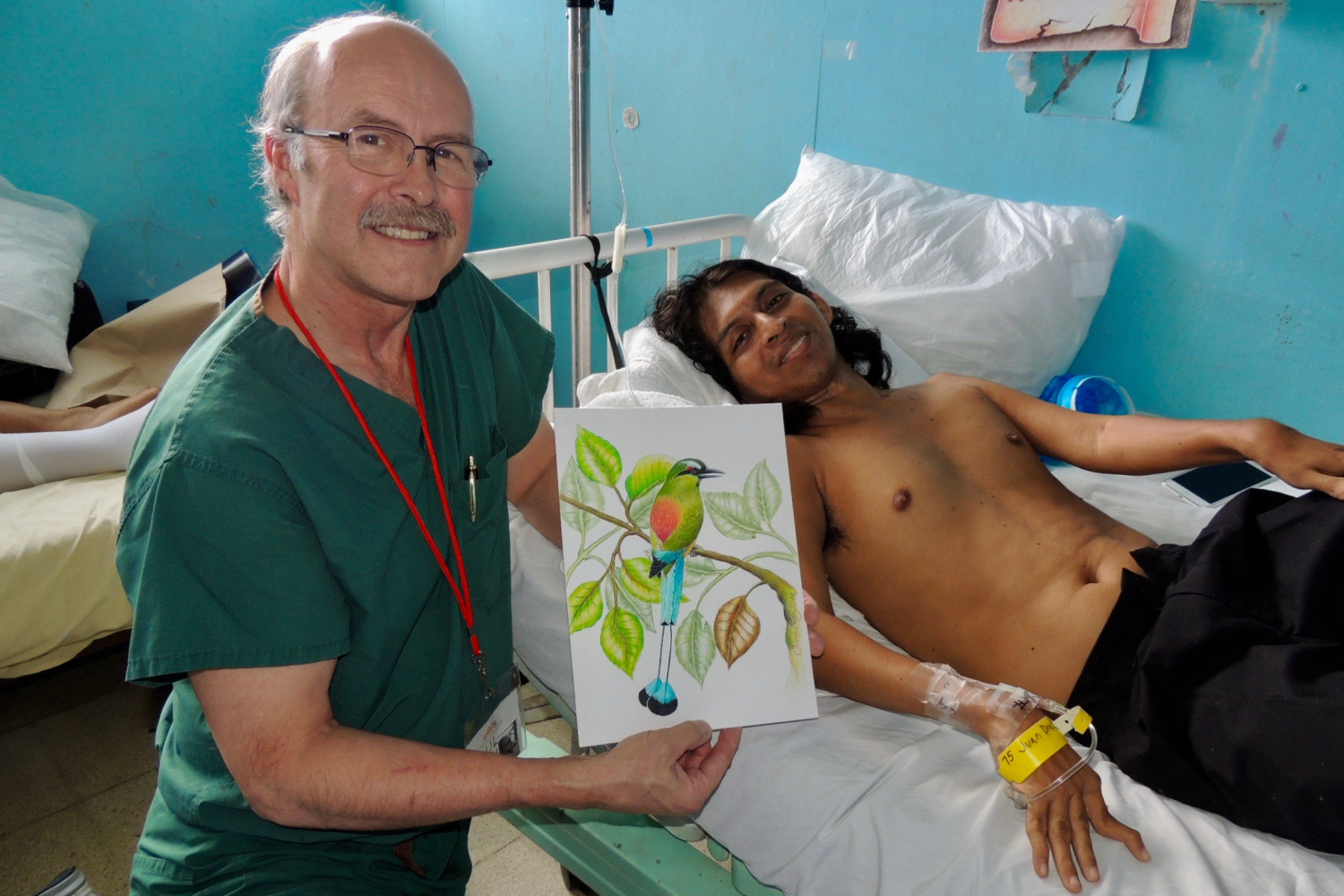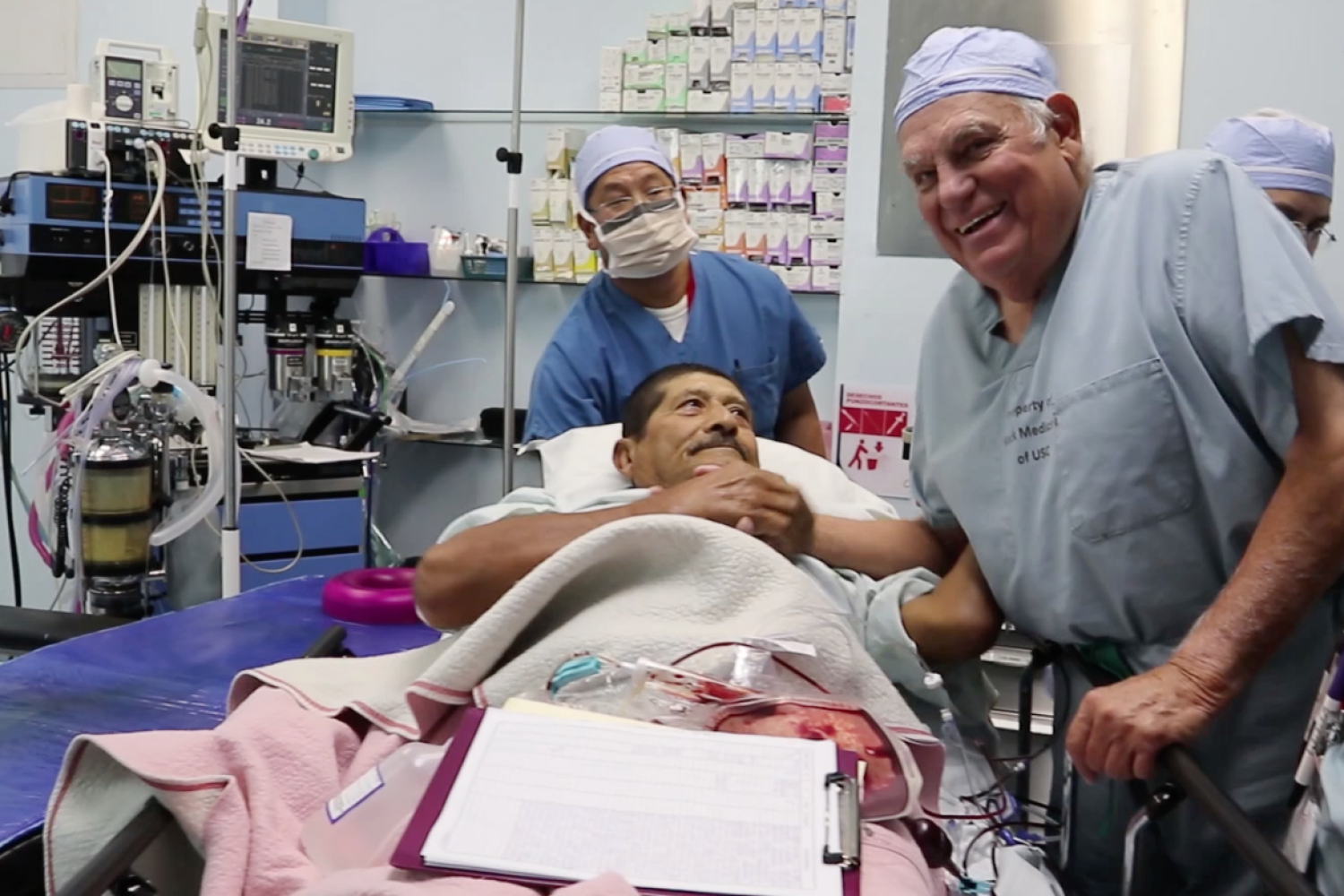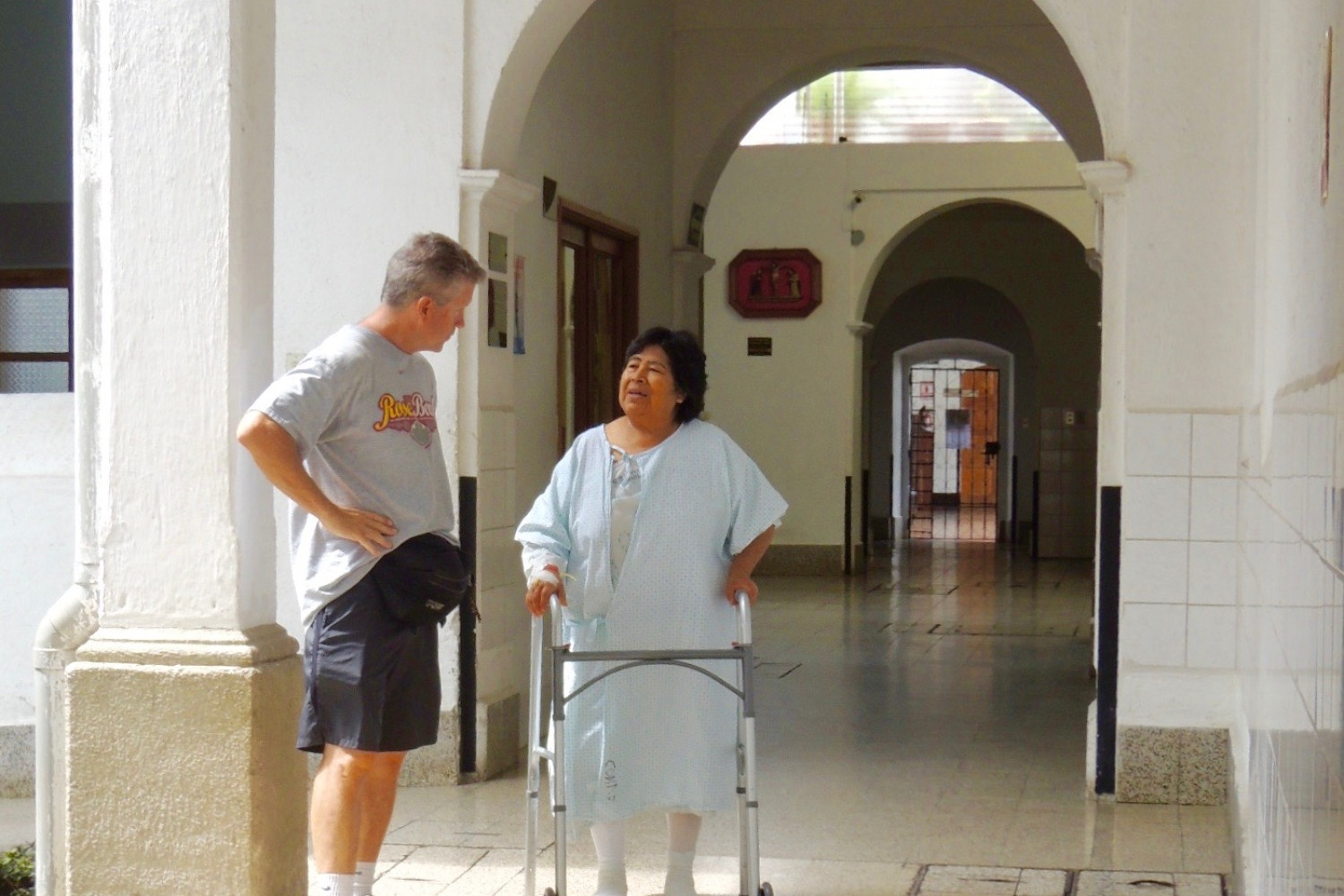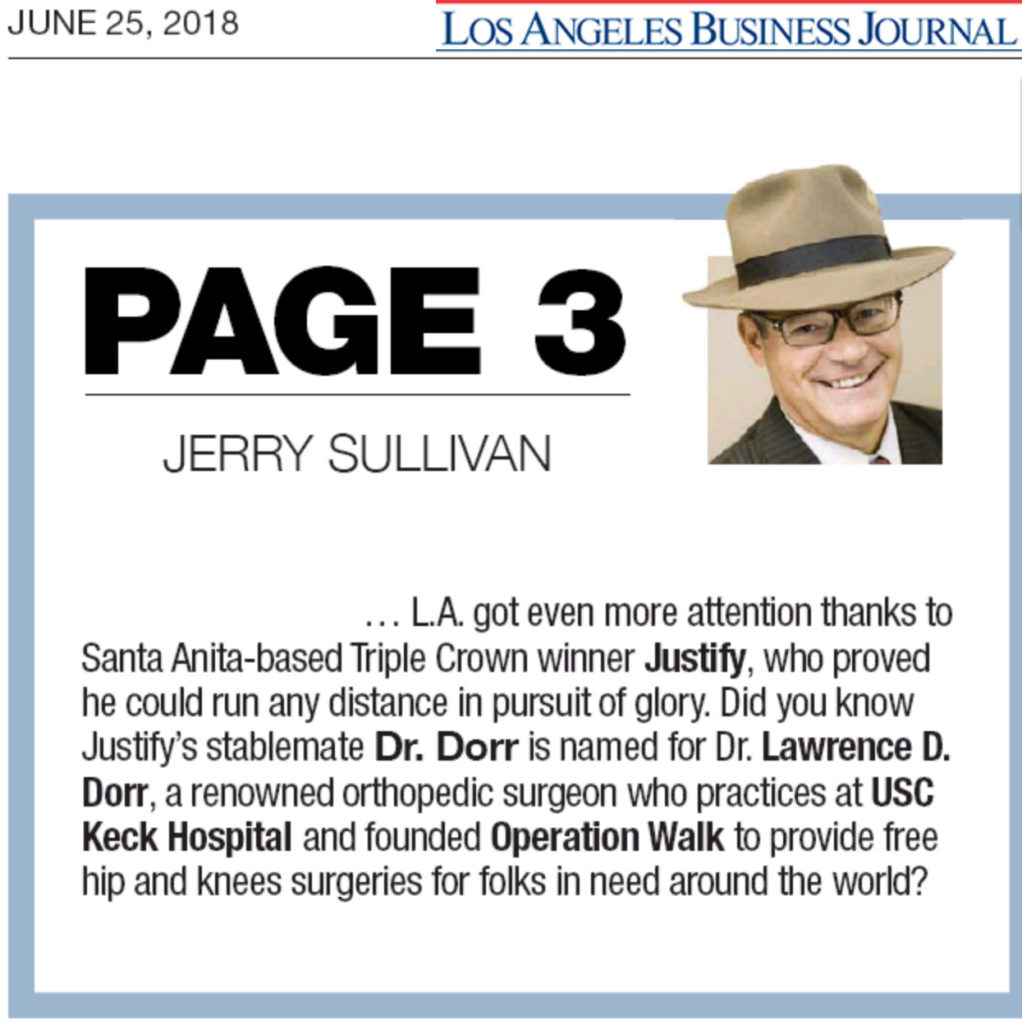
Paulina Andujo recipient of the Lillian Klapper RN Orthopaedic Nursing Education Award
We are proud to announce that volunteer Paulina Andujo, BSN, RN, ONC, recently received the Lillian Klapper RN Orthopaedic Nursing Education Award. This award is given to nurses who demonstrate excellence in the field of Orthopaedic Nursing. Not only do candidates need to exceed expectations in overall job performance, but also be an active participant in peer education, mentoring and in nursing governance through committee participation. Congratulations Paulina, we are lucky to have you as a part of our team!
Melida Cristopher (Story)
Introducing Melida Christopher Anderson, a 34-year-old woman who lives in Costa Atlantico, Nicaragua, and traveled far to the hospital here in Managua, almost a complete day’s trip by bus, to see if she would qualify for a hip replacement. When she was 15 years old, Melida was in a bus accident. She was traveling to see her relatives and the bus lost its brakes and flipped. Ever since, Melida has experienced significant pain in her back, left hip, and left leg. Despite this pain, she continued to work any job that she could, as a housekeeper, washing clothes, waitressing, anything to support herself and her two young sons. For the past three years, Melida has been unable to work due to the intensity of her pain. Ultimately, the pain was so severe that she was unable to bend down to put on her own shoes. Yet she remained hopeful and traveled to the hospital in Managua several times, pleading for help. She told the hospital staff that she was poor and needed surgery, and asked if there was anything that they could do for her. The hospital told Melida that there was a group from America coming and that with luck, they may be able to help her, but they could not promise anything.
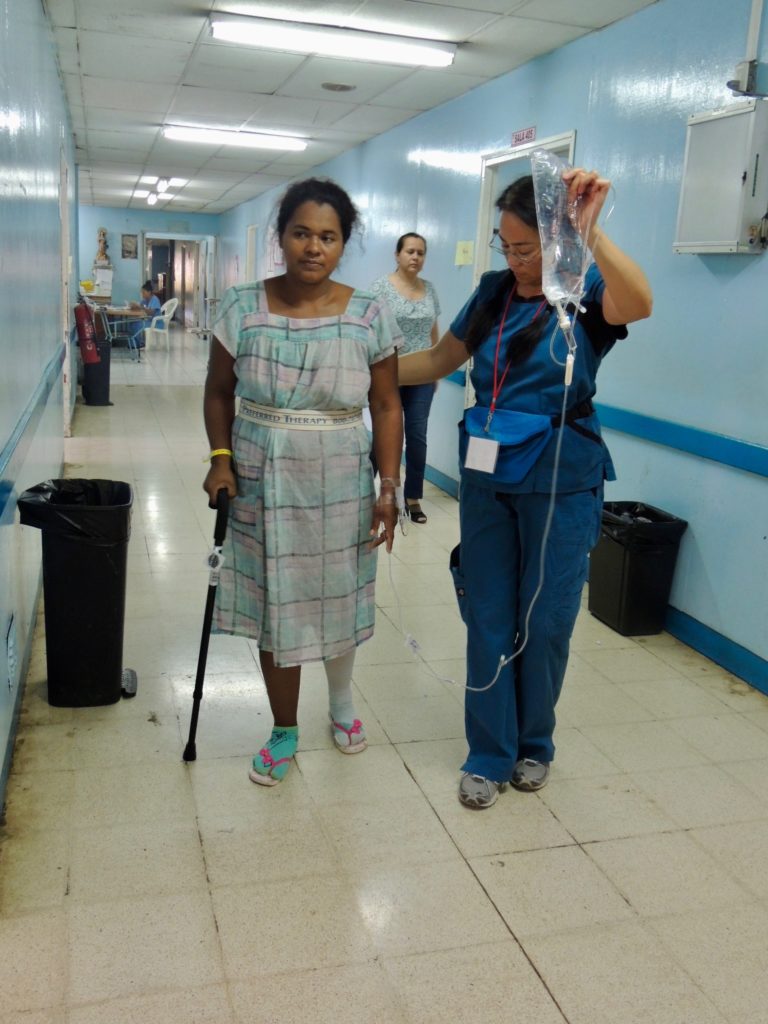 Melida was selected for surgery by our team and received a left hip replacement. The surgery was complicated and the first two days afterward were difficult. She was very tired and in discomfort. She felt that the effort it took to get to Managua (a twenty-four-hour bus ride) may have taken her strength more than the surgery she received. She also worried about what she would do after she was discharged from the hospital. Melida had been staying with her aunt in her small house and needed to sleep on the floor. Sleeping on the floor is not an option after surgery, as the probability of dislocating her new hip is very high and so she was uncertain where she could stay during her recovery. Operation Walk was aware of her concern and after some coordination with her aunt, our local transportation guide, the airlines, and a local hotel devised a plan for her to stay in accommodations near the airport while she recovers and then will provide a ticket for her to fly home instead of riding the bus. Day three after surgery was a complete turn-around. She was able to progress from using a walker to crutches and then a cane as she navigated the halls. Another boost to her morale was a visit from her aunt. Her aunt works long hours caring for several neighborhood children and did not have the chance to visit Melida until three days after her surgery.
Melida was selected for surgery by our team and received a left hip replacement. The surgery was complicated and the first two days afterward were difficult. She was very tired and in discomfort. She felt that the effort it took to get to Managua (a twenty-four-hour bus ride) may have taken her strength more than the surgery she received. She also worried about what she would do after she was discharged from the hospital. Melida had been staying with her aunt in her small house and needed to sleep on the floor. Sleeping on the floor is not an option after surgery, as the probability of dislocating her new hip is very high and so she was uncertain where she could stay during her recovery. Operation Walk was aware of her concern and after some coordination with her aunt, our local transportation guide, the airlines, and a local hotel devised a plan for her to stay in accommodations near the airport while she recovers and then will provide a ticket for her to fly home instead of riding the bus. Day three after surgery was a complete turn-around. She was able to progress from using a walker to crutches and then a cane as she navigated the halls. Another boost to her morale was a visit from her aunt. Her aunt works long hours caring for several neighborhood children and did not have the chance to visit Melida until three days after her surgery.
Melida was eager to return home to her children, ages 17 and 19. She missed them terribly during her time here in Managua, but is excited to show them how much better she is feeling and can walk after her hip replacement. Melida would like to say thank you for helping to provide her with the surgery that will allow her to be more active with her children, in her community, and be more able to support her family. She will never forget the generosity she received from the Operation Walk team and is thankful that she was able to be selected for this surgery that has changed her life.
Bayardo Guadado (Story)
Meet Bayardo Guardado. In his mid-60s and father of one son, his smile and gracious manner are infectious. Bayardo has driven a bus for the specially-abled for many years, but recently has found it more and more difficult to drive the manual stick-shift. He was concerned that if he did not receive knee replacement surgery, he would no longer be able to drive his passengers to their appointments and eventually would not be able to support himself. When selected, Bayardo was over the moon. His trademark smile and easy laugh have not left him, even in the recovery room.
Bayardo received a knee replacement and came out of surgery determined to start walking immediately. Bayardo did well during his two days of recovery. He began his physical therapy with a walker and was able to switch to crutches before he was discharged from the hospital. His brother came to pick him up on Sunday and he was full of smiles as well.
Bayardo is anxious to get back to work; in fact, that was one of the first questions he had for his medical team. “When will I be able to drive again?” was paramount in his mind. His surgeons assured him that he will be able to start driving again in four to six weeks after surgery, but he needs to take it slowly at first. Bayardo is beyond grateful for this “second chance” that Operation Walk has given him and says that he will remember all of the people who cared for him each time he drives his route. Driving his bus is his priority, as are the passengers he has gotten to know like family. He knows now that with patience and hard work, he will be able to drive them for many years to come.
Juan Diaz (Story)
Juan Diaz is a 27-year-old young man with a passion for living and for his art. When Juan was five years old, he was playing with his cousin and fell because his knee was unstable. He was in horrible pain and had trouble walking due to his knee becoming very swollen. When he went to the doctor, he was diagnosed with Rheumatoid Arthritis (RA). At 9, he developed a passion for painting. He had real talent and it became one of his true joys. With limited mobility, most activities were impossible. Therefore, painting became his sanctuary. For the next 14 years, Juan went through multiple treatments, but was not able to walk without significant help. The RA continued to break down his body. Some days, he was in so much pain that he could not even move. Through some treatment, he was able to walk on good days, but the trajectory of his health was becoming more evident. Eventually, he would not be able to walk.
The type of treatment that Juan needed was really not a possibility for someone living an hour outside of Granada. The RA had destroyed his hips and his right knee. At first, he did not have a lot of pain in his fingers; the RA had caused severe deformities as it attacked the cartilage, but the pain increased to such levels that he could no longer paint. In 2016, he met Shelley Craft.
Shelley had traveled to Nicaragua on a medical mission with her daughter and after her mission ended, Craft and her daughter traveled to an island to relax for a few days. The manager of the eco-resort where they were staying asked if they had heard of a local artist who struggled with RA. They had not, but immediately wanted to meet him and see his art. When Shelley met Juan, it was heartbreaking for her. She met a young man who had been decimated by years of untreated RA.
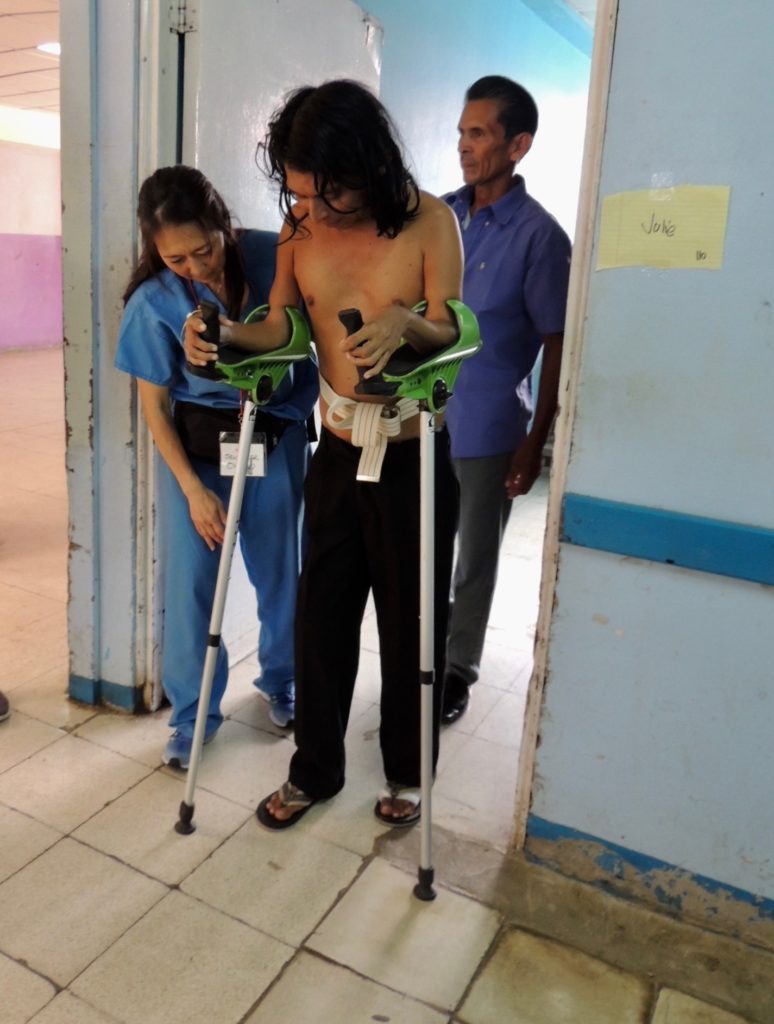
The paintings and sketches of the self-taught artist showed great talent. However, she knew that without treatment, his art career would end. At that moment, Craft vowed to Diaz and herself to somehow get him treatment. Shelley had quite a task ahead of her to get Juan the help he needed. She worked diligently and connected with Operation Walk and who decided to talk on Juan’s case. Through the coordination of several teams, they focused on helping Juan. In January of 2017, the Midwest chapter successfully completed a bilateral hip replacement, then the Los Angeles Operation Walk team replaced Juan’s Right knee in March. When he first met the LA team, he wanted to present one of his paintings to Dr. Dorr. It was a painting of the national bird, the Guradabarranco, which means the guard of the canyon. The title seems appropriate, as OpWalk is attempting to help guard Juan from the terrible effects of RA. After a successful knee replacement, Juan successfully completed his physical therapy and headed back home in the company of his sister and father.
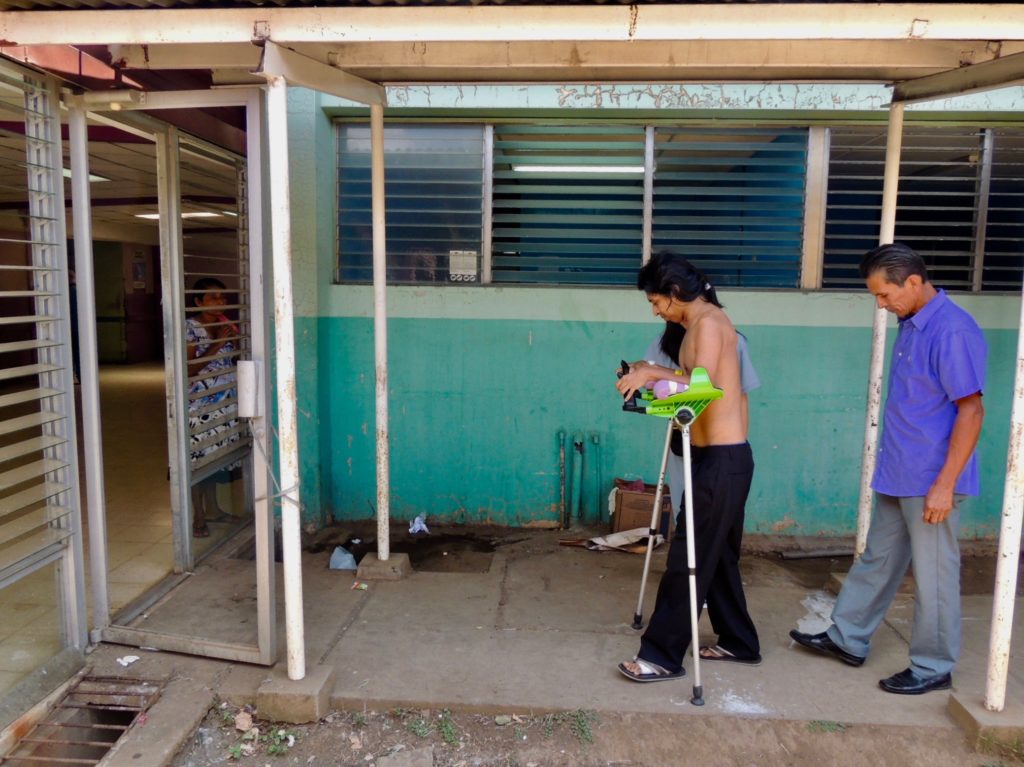
Before he left, he completed several drawings of thanks for his donors and made many friends throughout the ward. In fact, the day of his release from the hospital he did not want to leave until he knew that one of his fellow patients was assured safe travel home. We wish this caring and talented young man all the best during his recovery and are honored to have met him during our latest visit to Hospital Roberto Calderon.
Andrea Jimenez (Story)
Andrea Jimenez is a seventy-year-old mother of five children who works locally in Antigua as a caterer. Andrea has suffered from rheumatoid arthritis for over twenty years, which has worsened due to her many years working as a housekeeper. Since she was a single mother, she needed to find work that was less physically demanding, so she began cooking and delivering her food.
Each morning she would get on the bus with her client’s orders, but as the years went by it became more and more difficult to do. In the past year, her pain has increased so much that she needs to schedule several days of rest between deliveries. Her knees had become so stiff that other passengers had to physically lift Andrea on and off the bus. Andrea considers herself to be one of the luckiest people on earth.
She is confident that with the surgery she received from Operation Walk, not only will she be able to go back to a full work schedule, but she will also be able to do the one thing she loves the most, dancing. Salsa is her passion and she cannot wait to get back on the dance floor. “This is my second chance,” she told me a day after her surgery. “The pain is already less and I am walking. Thank you for giving me back my independence.”

